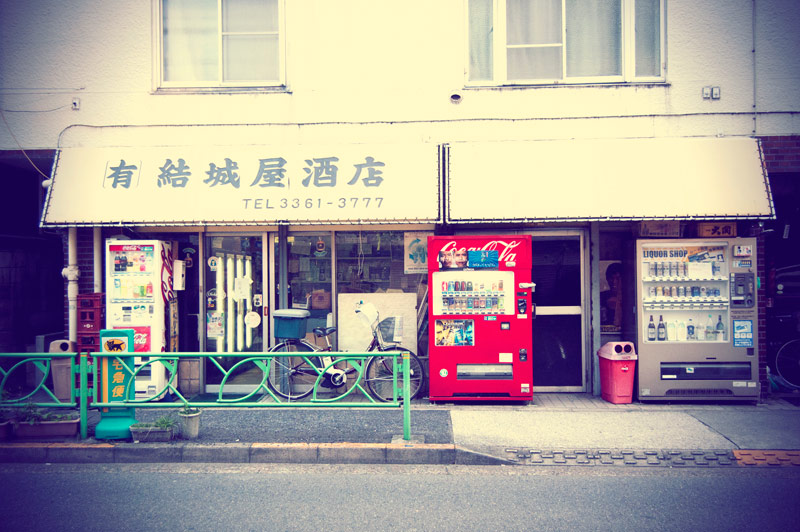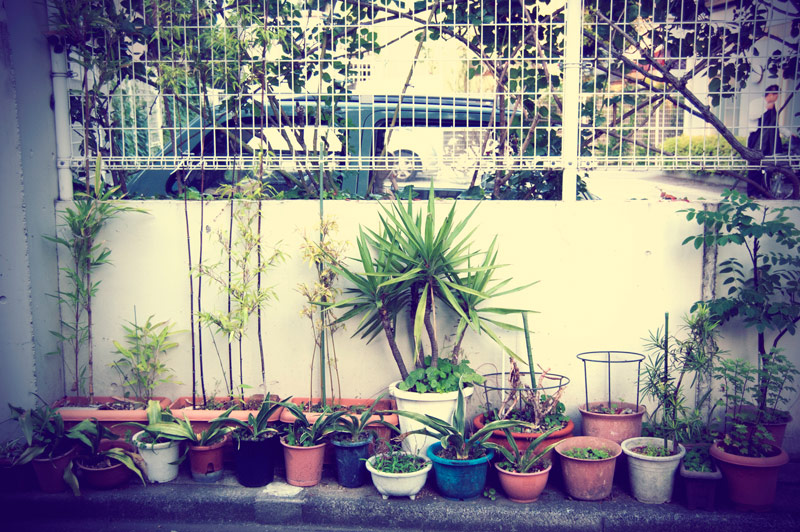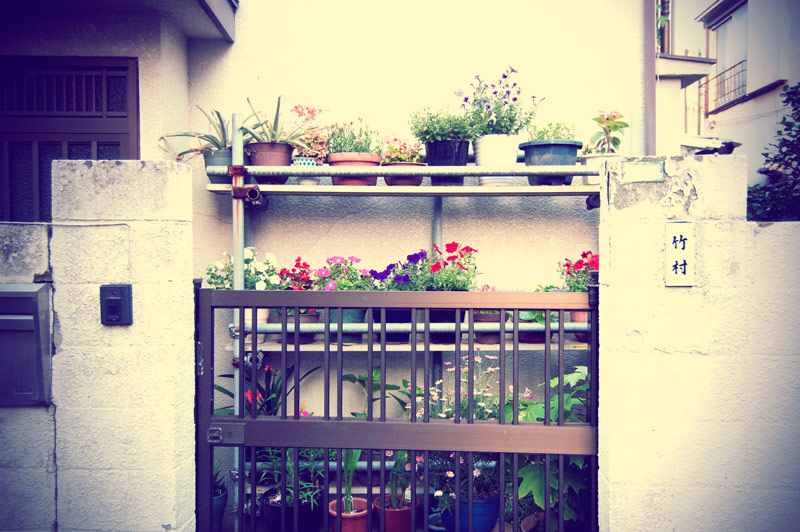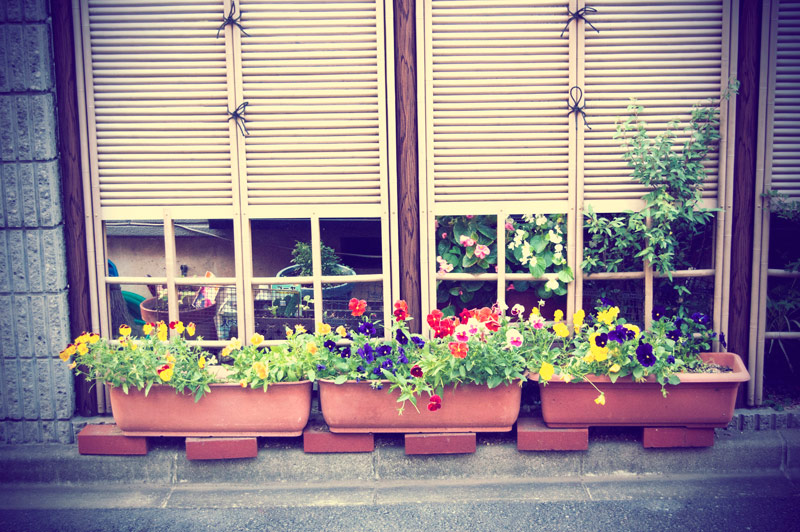10 things you may or may not know about Japan
Jun 7, 2011 by Sushi Bird

Lately I have been thinking that I want to write a couple of things that can be useful for other people to read. Of course it is nice to post pictures and write about what is going on in my own life, I will continue with that as well. I thought that after I moved to Japan I learned a lot of things about how it is to live here that I wasn’t really prepared for, so I decided to write a little list of things I wish people would have told me before I moved. (these are only my own experiences, feel free to disagree with me!)
10 things you may or may not know about Japan
- The laundry. To do laundry in Japan is a fun experience. There is usually no warm water connected to the washing machine. There is only cold water. When I first moved to Japan I was worried that the clothes wouldn’t get completely clean, but now I think the cold water washing machines are grand. The colors last much longer and the cold water is not as hard on the clothes. And oh, usually the washing machine is placed on the veranda, not indoors.
- Your clothes and your hair and your apartment in the summer. Speaking of laundry; Japans summer is very humid, which makes it hard to dry clothes. They kind of get almost dry, but not completely. Same with drying your hair. Even when you use a hairdryer, I often find that my hair doesn’t completely dry. The humidity also makes awesome conditions for mold and fungus. And the Japanese black mold is not like western mold. It is mold on steroids. I have no science to back me up on this, but I sincerely believe it can form over night. That is why you usually try to have a gap of a couple of cm between the wall and the furniture, so the air can pass through and no mold will form. And don’t get me started on the dust. I have no idea how or why the dust gathers so quickly, but prepare to clean a whole lot more if you move to Japan.
- The kitchen. There average Japanese kitchen does not have an oven. You can not roast a turkey or bake a pizza. I am sure kitchens with ovens do excist, if you are willing to pay the rent for such a place though. (A lot of the microwave-ovens here have a toaster-oven function though!) You cook with gas, and I still find the open flame incredibly scary.
- Smoking. Smoking is forbidden in public places (at least most of Tokyo), however, smoking is totally legal inside restaurants and bars. Sometimes there will be a non-smoking section within the restaurant (especially if it is a family-resturant), but a lot of the izakayas are all smoking seats. Very many bars allow smoking in the entire bar.
- Eating on the street. Eating on the street is not illegal of course, but it is kind of frowned upon, Japanese people have a tendency to sit down and then eat. You almost never see people eating on the train or the bus, or walking down the street eating. It is kind of strange since Japanese are very busy, you would think they would always walk and eat, but that is not the case. (You can see young people in Harajuku and Shibuya eating crepes and kebabs and walking though.)
- Drinking on the street. … however, drinking alcohol on the street is totally legal. Hurrah!
- Opening hours. I have only lived in Tokyo, so I am not sure how the rest of Japan works in this area, but basically, Tokyo does not really close. The bars stay open late, and there are even bars that open when the other bars close, so the staff that works at the first type of bar can go and drink at the second type of bar. Grocery stores stay open until 11, 12, 02 and 05, depending on what grocery store it is. All the combinis (like 7/11, FamilyMart, MiniStop, Lawson etc.) stay open 24/7. However, the last train leaves between 12 and 01 to most places, so the people who do not catch their last train, can stay out drinking in bars (and take little catnaps with their head resting on the counter) until the trains start going at 05 or 06 in the morning and they can get home.
- Buying bulk. In most other countries, buying bigger packages usually means that the price goes down pr gram/kg. In Japan, half of the time the price goes up. It is often more expensive to buy a bigger package. Example from the supermarket yesterday: 100g pack of chocolate = 168 yen. 400g pack of chocolate = 800 yen. Why? I don’t know. It teaches modesty, at least. (I am sure there are stores like Walmart where buying bulk is cheaper, I am just talking about the average supermarket.)
- Addressing other people. You probably already know that Japanese people always address people whom they are not very close with by their last name. This is absolutely true. I actually do not even know the first name of half of my teachers, and I would never ever think about using a teachers given name to them. Friends are of course a different thing all together. To stay safe, add -san after people’s last name, but never after your own.
- Names that end with -ko. Speaking of given names; until about 40 years ago, most girl-names ended with -ko. Yukiko, Aikiko etc. Nowadays there are other names like Eri and Nana etc, but finding a woman over the age of 45 with a name that doesn’t end in -ko is not that easy. To learn the given names of women over 45 is not always easy either (unless you become good friends), see previous point.





I can relate to a lot of these- however we cook (most do anyway) with gas in Australia- in fact my mothers oven is gas not electric as well. I miss having a proper oven- we are in the process of designing a house and I will import an oven for it I think- I use my microwave oven for baking and cooking lasange/pizza etc though. Usually turns out okay but sucks if I want to use the microwave as well.
I have never had my washing machine on the veranda…but I do know it is common in smaller apartments and a lot of older apartments too. Dryers are not common either (are they in Europe?)
Our microwave is also an oven, but I have to admit I barely know how the oven-function works. (This might be because I dislike cooking, though.) I have had dryers when I was living in Europe, but I am not sure if they are common or not.
This was interesting!
Thanks!
I always enjoy such facts about countries and cities, facts that usually u don’t find in travel guide books.
I wish someone would have told me these things before I moved so I knew what I was getting myself into. Now I have fully adapted and don’t think much about it anymore, but it was a big change in the beginning.
Sounds good to sit down to eat. I would imagine that people enjoy their food more when they take the time to actually have a meal instead of just “putting some food” in their body.
I totally agree. I do find it a bit strange though, considering how busy Japanese people are. In any case, it is a good thing most of the time.
Dette var veldig interessant! Så rart å tenke på at slike hverdagslige ting man tar for gitt fungerer på en helt annen måte i andre land. Som regel når man drar på ferie tenker man utelukkende på at temperaturen, omgivelsene og maten er annerledes, men man bor der ikke lenge nok til å tenke på matlaging, klesvask og rengjøring.
På videregående brukte jeg så og si bare fornavn på lærerne mine. Nå omtaler jeg alle foreleserne mine med etternavn. Det føles rett og slett mer riktig.
Ja, ikke sant? Dette var ikke ting jeg tenkte på i det hele tatt før jeg flyttet og befant meg midt oppe i alt sammen. Det tok litt tid å bli vant til alt, men nå synes jeg både det er logisk og smart. (Vel, det aller meste, i alle fall )
)
Skikkelig interessant. Spesielt det med vaskemaskinene. Kaldt vann er jo også mer miljøvennlig, hvorfor har ikke Norge det?
Er så spent på om jeg kommer til å lære kinesisk eller japansk neste år. Har lyst til begge, så jeg har søkt på begge. Gleder meg skikkelig til utvekslingen!
Så spennende! Og selv om Kina og Japan er nært hverandre sånn geografi-messig, så er det jo to vidt forskjellige verdener. Blir spennende å høre hva du ender opp med å velge!
Interessant! Jeg synes også at gassovn er superskummelt, og da jeg var i usa i februar fikk jeg alltid de jeg bodde hos til å skru på ovnen.
Høres egentlig ganske smart ut å vaske klær i kaldt vann, så lenge det blir rent:)
Egentlig er det jo ikke skummelt med gassovn, man kan i det minste se flammen og se at det er varmt, men for meg er det noe rart med å ha åpne flammer innendørs…
Vaskemaskinen fungerer faktisk veldig fint, og tøyet blir rent, så den er jeg fornøyd med
Veldig interessant! Vurderer å kaanskje ta masteren min i Japan. Enten det eller Storbritannia. Greit å ha litt informasjon med seg på veien
Å, så spennende! Det blir spennende å se hva du velger! Hva skal du ta masteren din i? Det er jo noen gode amerikanske universitet her, men de koster jo også en del…
Veldig interessant lesning. Tusen takk for kjempefin post! Åh, jeg SKAL dra til Japan snart. Har så kjempelyst!
Takk skal du ha! Og ja, kom til Japan!
Super cute! Thanks for the tips. Always wondered what it’s like to live in Japan.
Thank you! I always love reading little lists like this myself, so I thought I could try to write one as well.
[…] “10 Things You May or May Not Know about Japan.” Sushibird.com. 7 June 2011. Web. 21 July 2011. http://sushibird.com/2011/06/10-things-you-may-or-may-not-know-about-japan […]